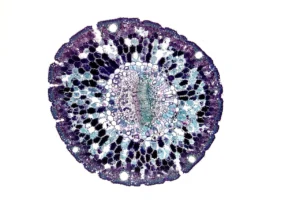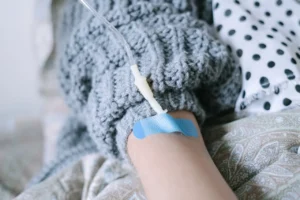
Bayer today announced that the Center for Drug Evaluation (CDE) of China’s National Medical Products Administration (NMPA) accepted the submission of an application for regulatory approval of aflibercept 8 mg for the treatment of neovascular (wet) age-related macular degeneration (nAMD). Study data are now under review by the regulatory body in China. The application is based on positive results from the phase III PULSAR trial in nAMD, in which aflibercept 8 mg met its primary endpoint of non-inferiority in best corrected visual acuity (BCVA) changes compared to Eylea (aflibercept 2 mg) with a fixed 8-week treatment interval at week 48. Aflibercept 8 mg demonstrated unprecedented durability with the vast majority of patients maintaining 12- or 16-week dosing intervals.
“Retinal disease is a significant health issue in China. For patients living with neovascular age-related macular degeneration, losing visual function substantially impacts their lives. It can result in loss of independence and an inability to conduct simple tasks such as reading, writing, and getting dressed. Although effective treatments are available, long-term treatment adherence can be difficult for these patients. Extended treatment intervals can address this important patient need by reducing the number of injections and alleviating the burden on patients,” said Dr. Christian Rommel, Member of the Executive Committee of Bayer’s Pharmaceuticals Division and Head of Research and Development.
At week 48 in the PULSAR clinical trial, aflibercept 8 mg, dosed with extended treatment intervals (every 12 or every 16 weeks) demonstrated comparable visual acuity to the standard of care Eylea™ (aflibercept 2 mg) with a fixed 8-week treatment interval, following three initial monthly doses. Aflibercept 8 mg showed unprecedented durability with 77% of nAMD patients randomized to the 16-week dosing arm achieving and maintaining 16-week treatment intervals with an average of only 5 injections through week 48. Of those nAMD patients randomized to the aflibercept 8 mg 12-week dosing arm, 79% maintained their interval with an average of 6 injections through week 48. In addition, aflibercept 8 mg showed faster fluid control to the comparator Eylea (aflibercept 2 mg) through to week 48.
The safety of aflibercept 8 mg was similar to the well-established safety profile of Eylea (aflibercept 2 mg) and consistent with previous clinical trials. The rates of intraocular inflammation and intraocular pressure increase for aflibercept 8 mg were low and similar to Eylea (aflibercept 2 mg). There were no cases of endophthalmitis, retinal vasculitis and no new safety signals through to week 48.
Eylea HD (aflibercept 8 mg) has been approved for use by the FDA in August 2023. To date, Eylea™ 8 mg (aflibercept 8 mg, 114.3 mg/ml solution for injection) has been approved in the EU, Japan and other markets for the treatment of nAMD and DME. Bayer has submitted regulatory applications for aflibercept 8 mg in additional markets.
Eylea 8 mg (aflibercept 8 mg; in the United States: Eylea HD) is being jointly developed by Bayer and Regeneron. Regeneron maintains exclusive rights to Eylea 2 mg (aflibercept 2 mg) and Eylea HD in the United States. Bayer has licensed the exclusive marketing rights outside the United States, where the companies share equally the profits from sales of Eylea 2 mg and Eylea 8 mg following any regulatory approvals.
About PULSAR
PULSAR is a double-masked, active-controlled pivotal phase III trial, conducted in multiple centers globally. PULSAR evaluated the efficacy and safety of aflibercept 8 mg in nAMD with 12- and 16-week dosing regimens versus Eylea (aflibercept 2 mg) dosed every 8 weeks, following initial monthly doses, with the primary endpoint of non-inferiority in terms of best corrected visual acuity (BCVA) at week 48. Patients were randomized at baseline and assigned to the three different arms. In PULSAR, 1,009 patients were treated. All patients in the aflibercept 8 mg arms were continuously evaluated under stringent, clinically relevant, patient focused dose regimen modification (DRM) criteria starting from week 16 throughout the study. Patients on aflibercept 8 mg arms were assessed at multiple time points for DRM criteria and may have had their dosing interval shortened to 8 or 12 weeks to secure appropriate disease control through week 48.
About nAMD
Neovascular (wet) age-related macular degeneration (nAMD) is an eye disease that progresses rapidly and if left untreated can lead to vision loss in a few months. nAMD is one of the leading causes of irreversible blindness and vision impairment around the world. nAMD may affect people as they age. It occurs when abnormal blood vessels grow and leak fluid under the macula, the part of the eye responsible for sharp central vision and seeing fine detail. This fluid can damage and scar the macula, which can cause vision loss. 196 million people worldwide are living with AMD – it is anticipated that this figure will increase to 288 million by 2040.




